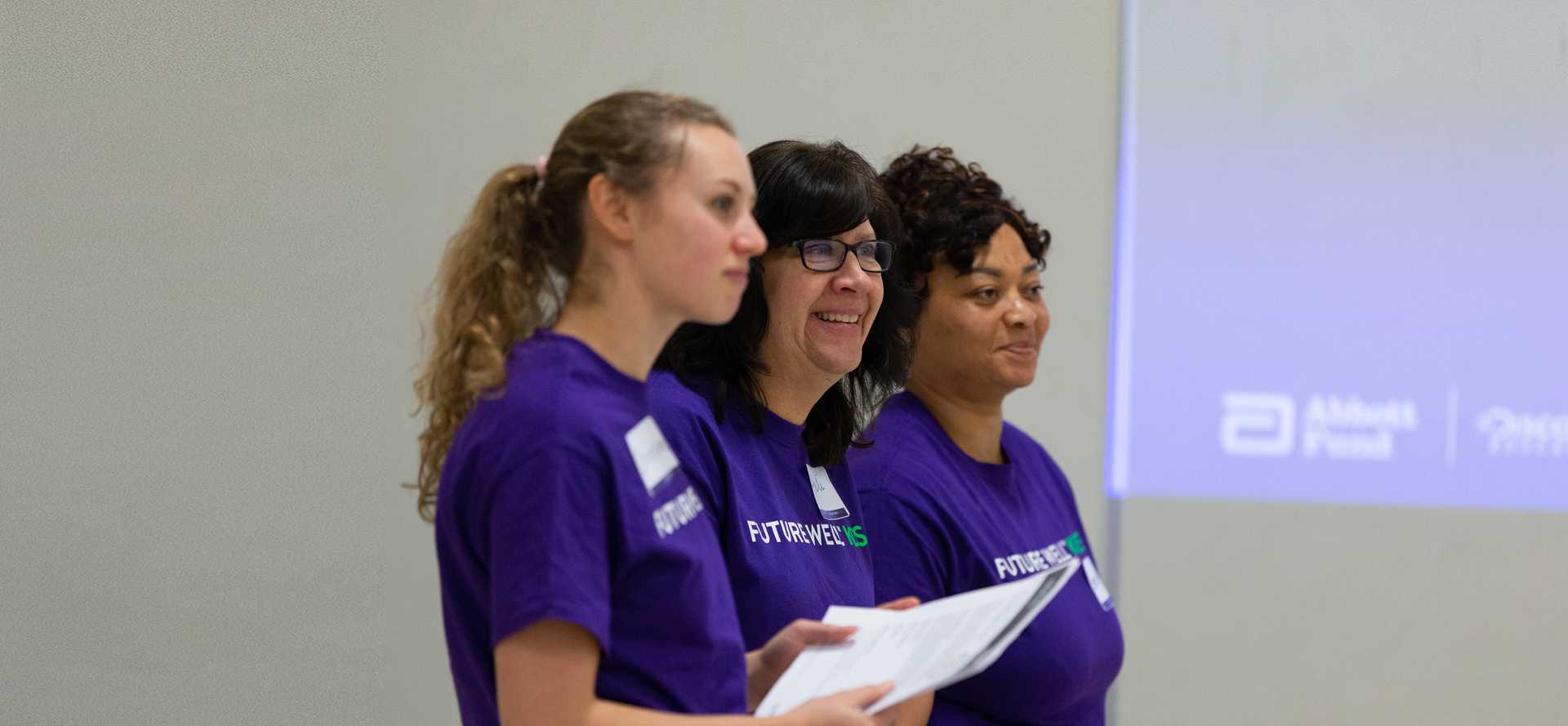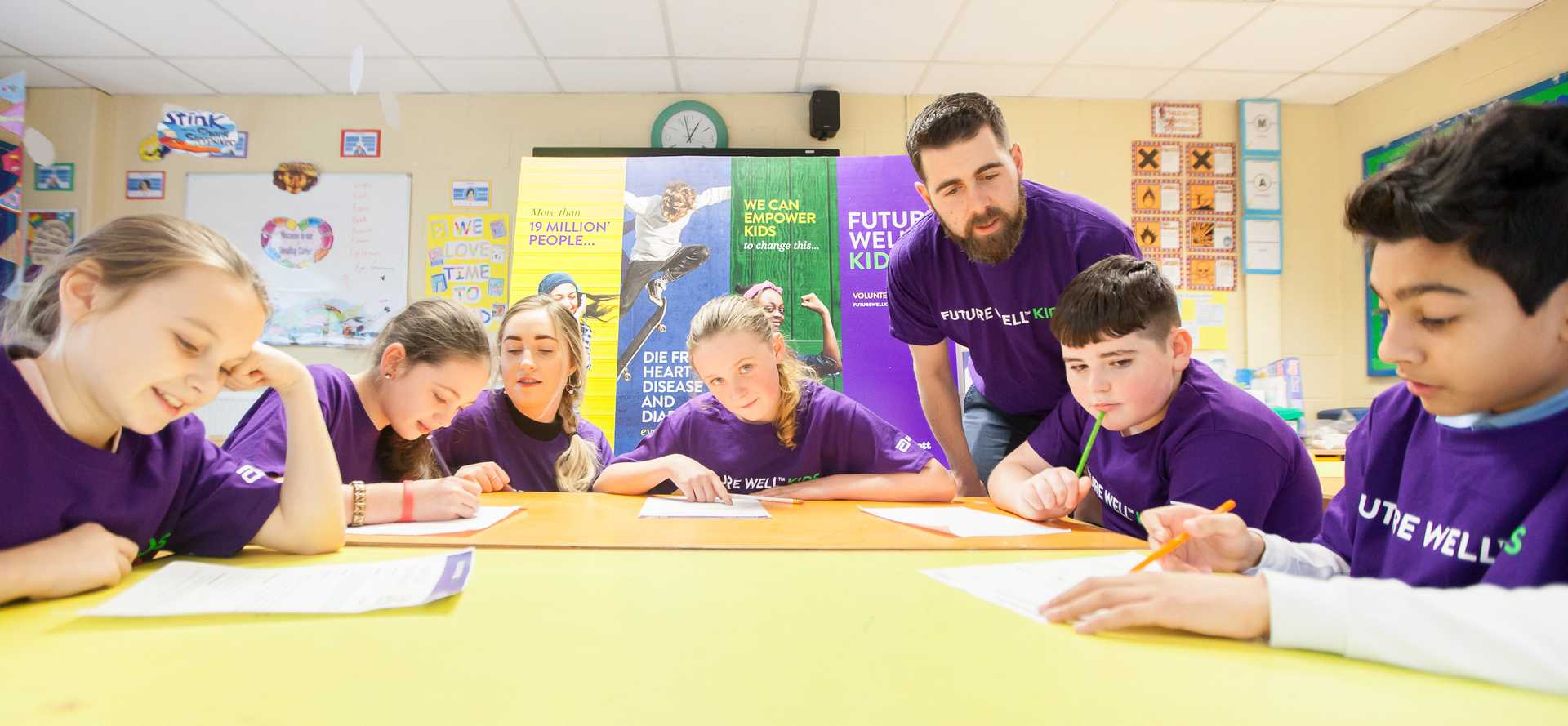READY-TO-USE RESOURCES
Interested in Future Well™ Kids, but your Abbott site hasn’t launched the Future Well™ Kids program yet? Review the resources under Getting Started and deliver these Ready-to-Use lessons to students ages 10-13 in your community.
READY-TO-USE
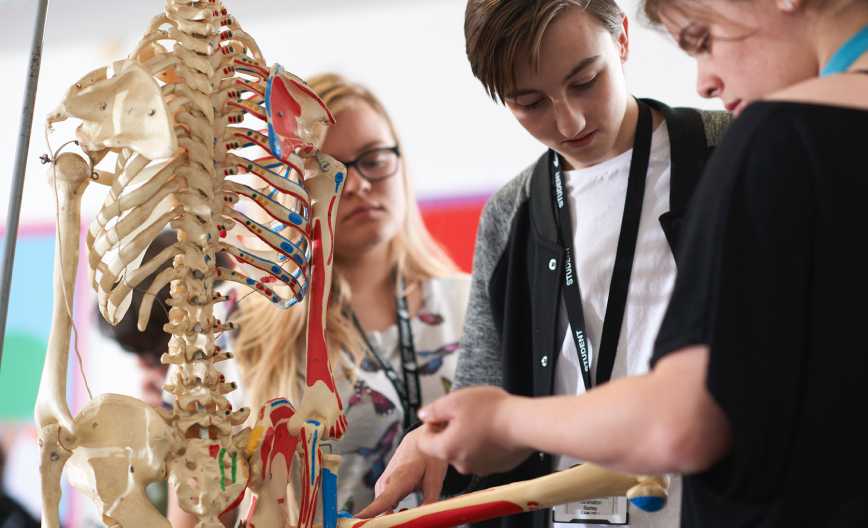
CITIZEN SCIENTIST
45–60 minutes
Inspire students to become citizen scientists by showing them the amazing ways that regular people can contribute to health and science. Students will analyze how elements of their environment can contribute to noncommunicable diseases (NCDs), before brainstorming ways that NCDs could be reduced in the future.
VISIT 3

KEEP IT MOVIN’
45–60 minutes
Get students’ minds and bodies moving as you teach them about the importance of physical activity. Students will play a simple board game involving short bursts of physical activity, while learning how to reduce the risk of developing NCDs through food choices.
READY-TO-USE

RISE AND SHINE!
45–60 minutes
Examine the key role that nutritious food choices have in reducing students’ risk of developing NCDs. Students will learn how to start off strong each day with the most nutritious breakfast possible, before creating their own restaurant menu.
SELF-PACED MODULES
Self-Paced Modules are interactive online lessons that allow your student to learn about key concepts at their own pace. They feature animation, interactive activities and a quiz with immediate feedback. Your student may complete these modules alone or you can complete them together as a family.
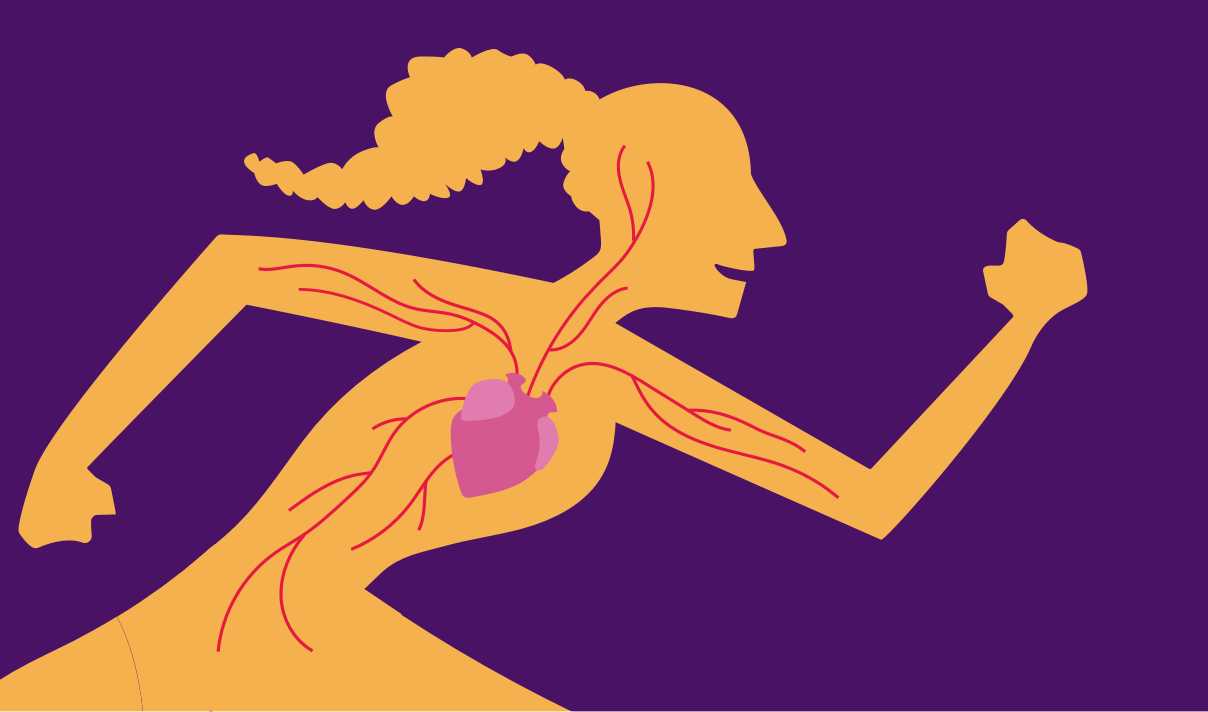
EXERCISE FOR HEALTH
15–20 minutes
In this module, students learn about what happens to our bodies when we exercise, why exercising is good for us and the risks associated with not exercising, including the development of noncommunicable diseases (NCDs), such as heart disease and Type 2 diabetes.
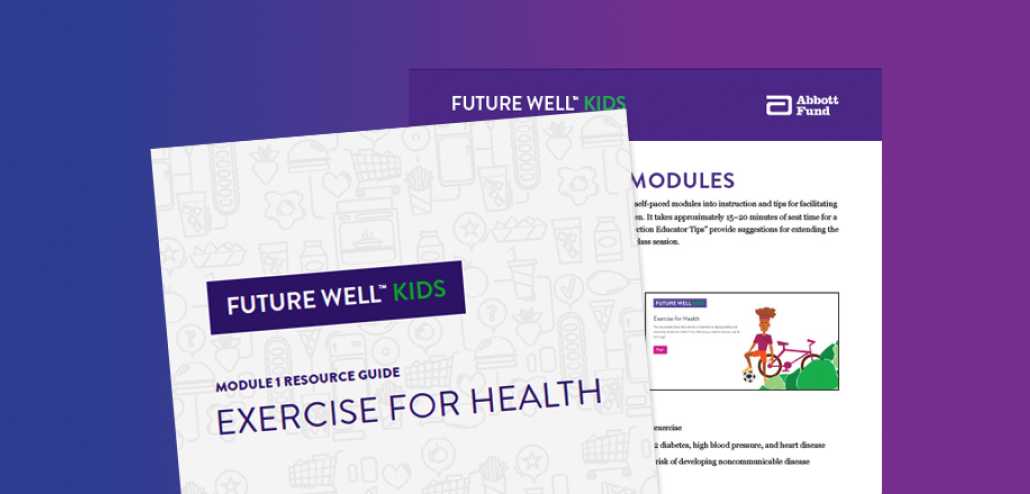
COMPANION EDUCATOR GUIDE
This Companion Guide to the Self-Paced Module includes a summary, guide to using the mini-modules, tips and content standards.
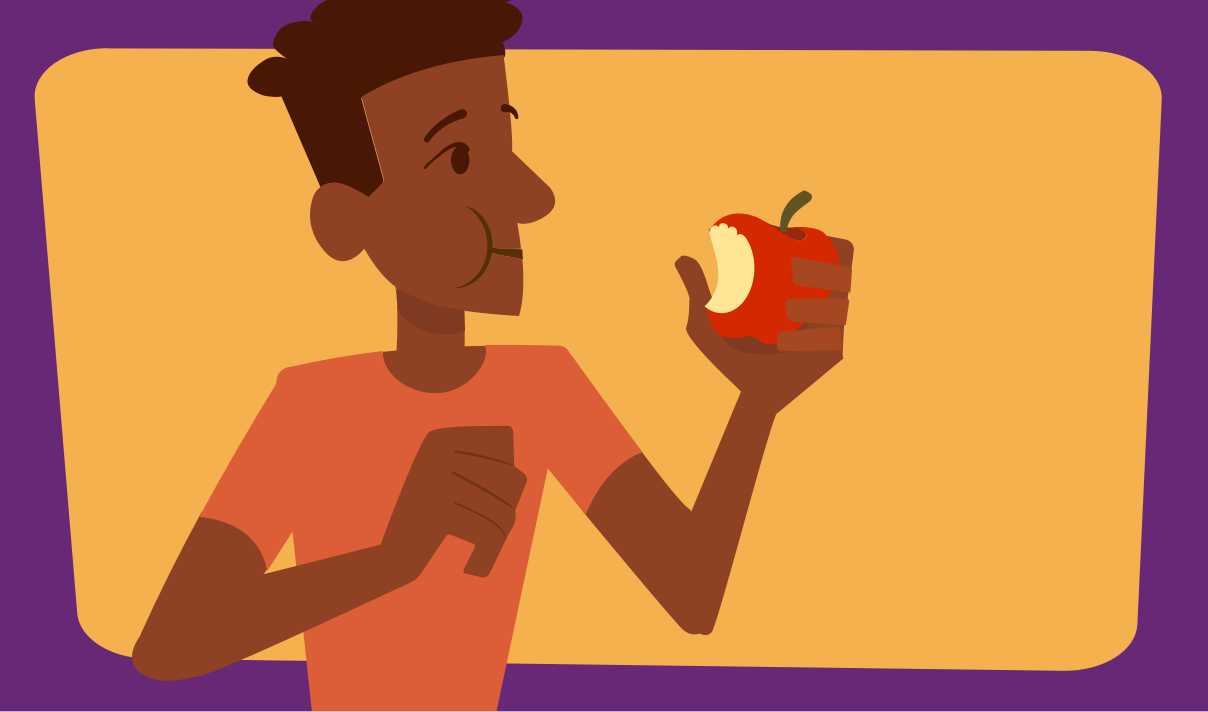
NUTRITIOUS EATING
15–20 minutes
In this module, students learn how eating nutritious foods can help keep them healthy and the risks associated with making poor food choices, such as an increased risk of developing noncommunicable diseases (NCDs) like heart disease and Type 2 diabetes.
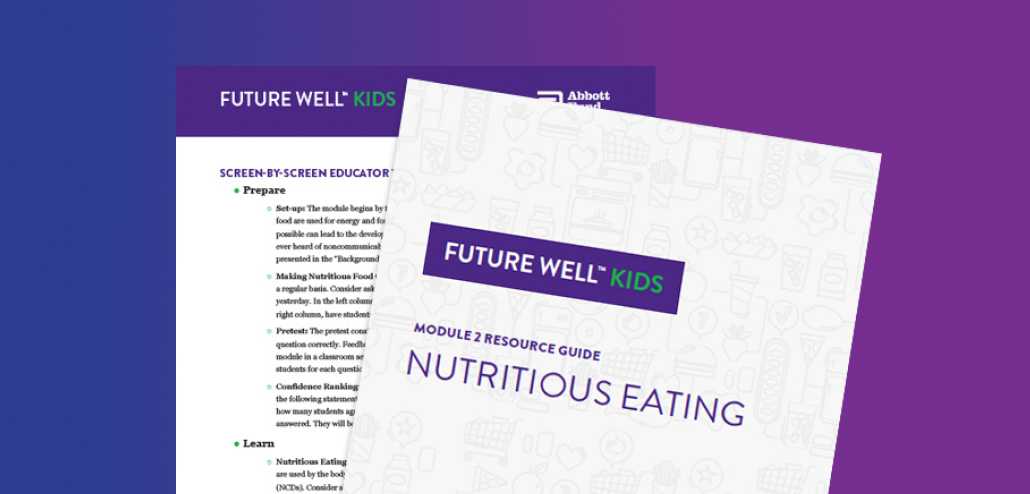
COMPANION EDUCATOR GUIDE
This Companion Guide to the Self-Paced Module includes a summary, guide to using the mini-modules, tips and content standards.


